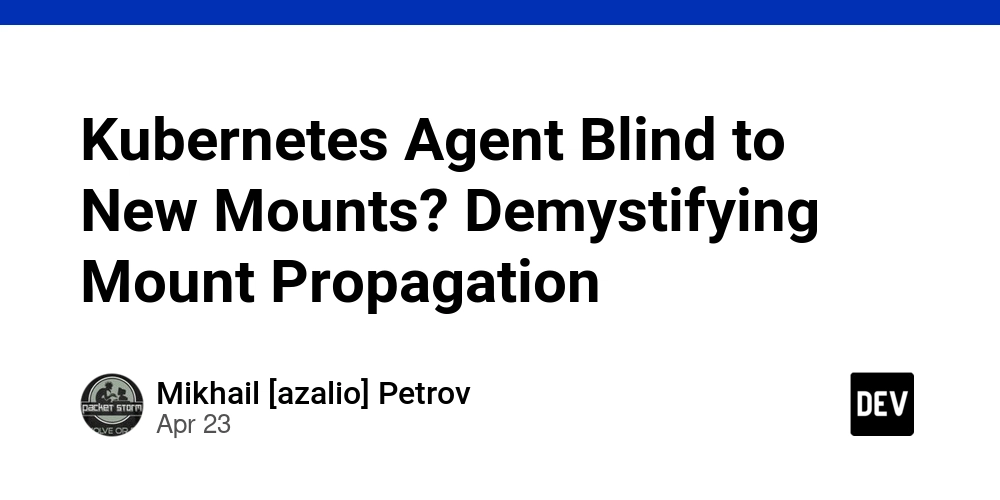Dev
1M
239

Image Credit: Dev
Kubernetes Agent Blind to New Mounts? Demystifying Mount Propagation
- The article discusses how Kubernetes mountPropagation: HostToContainer leverages Linux namespaces to address the issue of agents being blind to new mounts created by Kubelet.
- By default, each container in Kubernetes has its own isolated mount namespace, which causes the 'blind agent' problem when new mounts are not automatically reflected inside the container.
- Kubernetes provides the mountPropagation field with modes like None, HostToContainer, and Bidirectional to control the sharing of mount events between the host and container's namespace.
- To fix the blind agent issue, setting mountPropagation to HostToContainer allows the agent to see new PVs mounted by Kubelet without requiring a restart.
- When mountPropagation is set to HostToContainer, any mount events occurring under the host path are automatically propagated into the container's mount namespace.
- Considerations include security implications of Bidirectional mode and the need for appropriate privileges if the agent performs actions within the propagated mounts.
- For troubleshooting, checking the mount table inside the container and comparing it to the host's can help identify issues related to mount propagation.
- Understanding the HostToContainer mode (rslave) of mountPropagation is essential for agents needing visibility into dynamically created host mounts managed by Kubelet.
- Kubernetes mountPropagation is a valuable tool that allows breaking container isolation selectively, enabling the creation of more robust and reliable agents and operators.
- The article provides a detailed guide on using Kubernetes mountPropagation effectively to solve common agent visibility issues without resorting to restarting them.
- The HostToContainer mode in mountPropagation plays a key role in addressing the challenge of agents needing to interact with dynamically created host mounts in Kubernetes clusters.
Read Full Article
14 Likes
For uninterrupted reading, download the app